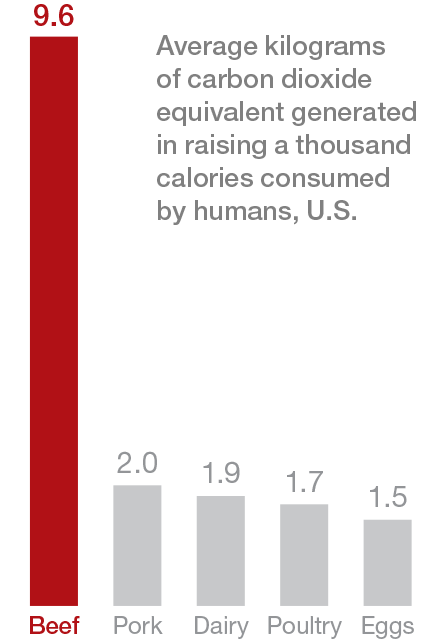What are you willing to sacrifice for the environment? Your time? Money? Convenience? Choice?
If environmentally-friendly options were as cheap, convenient and attractive as non-sustainable choices, we’d be choosing the better options without a fuss. Instead, we need to engage in thought experiments as we make decisions.
I was faced with the sustainability dilemma for a 3-day conference in Belgium – a short 1+ hour flight from my home in Zürich, but a 7 – 9 hour train ride away. Should I go? Is the conference so necessary to me professionally that it justifies a flight? Do I want to spend an entire day traveling there and another traveling back?
I posit that we should review our choices from the following dimensions:
COST
How much more will the environmentally-friendly option cost?
Your limit may differ from mine, but if a conventional item costs CHF 100, then I think I can afford CHF 110 or CHF 120 for the environmentally-friendly version. Would I pay CHF 150? It might depend on the situation or product.
TIME
How much more time will the sustainable version take?
Do you need to go to a separate store? Research where to buy sustainable furniture/clothing/shoes/groceries?
For me, the choice was between a very short flight and a whole day (or overnight) of travel.
VARIETY
Do you have fewer options with the sustainability? Only one cereal brand, one color shoe, no veal (typical meat production is incredibly cruel to animals in the US, where standards are shockingly lower than in Europe)?
It may not be your favorite color/style/brand, but it’s a bearable sacrifice.
CONVENIENCE
Similar to time, how much more effort will it take? Think of your time as an investment–once you know where to buy the sustainable product, you won’t need to research that product again.
If I need a particular vegetable for a meal I’m planning to cook but the supermarket only offers it in plastic packaging (for broccoli? or bananas? really?) or styrofoam, then I don’t buy it. I’m annoyed, definitely. But I can cook something else. Plastic and styrofoam don’t biodegrade, period.
I think of it as the freedom to or option to (support sustainability) rather than restrictions from (having it my way when I want it). I freely choose.
ENVIRONMENTAL IMPACT
How big is the environmental impact? Between beef and any other food item: a lot. Between flying and any other mode of travel: a lot.
Focus on items that have a big impact on the environment; maybe you’ll choose to spend your extra time or money on those choices.
You may have heard the joke about the tailor who says: You can have it cheap and quick but not good or good and quick but not cheap or cheap and good but not quick. Sometimes you will have to pay more for sustainable options, be it in time, energy, variety, or money. But women who have to walk miles to find water or firewood, farmers whose crops don’t grow because of climate change — they don’t have easy options. We do.
So what did I do about the conference? The cost difference between flying and the train wasn’t a determining factor. Time and convenience were, but the environment won out. I decided to sacrifice my time and spent the Sunday before the conference traveling by train. My husband and I then combined my business travel with our vacation, and he flew to Belgium Wednesday night after work (yes, an imperfect solution). We then took the train back to Switzerland the following Monday (another time and vacation-day sacrifice) so at least we were spending the day together.
Would I make that same decision again? Yes, easily. Was it perfect? Not when our train to Paris was late and we missed our connection. But we were put on another train an hour later–not a huge inconvenience.
Nor am I bothered that my husband flew — it was clearly impractical for him to take the train (we didn’t consider an overnight trip because we had to change trains 4 times). A solution doesn’t have to be perfect to be good. Maybe sometimes you buy the more expensive bio fruit and sometimes not. Sometimes you take the bus to work instead of driving or order fish instead of beef. You don’t have to do it every time in every situation.
Where are your limits? Engage in a thought experiment next time you’re choosing to spend money. How can you interact with the marketplace differently? And what dimensions do you use for your decision-making?


Wow, I was not aware of such a huge difference .. and apparently lamb is even worse than beef.
https://www.planetforward.org/idea/counting-calories-count-your-carbon-too
The thing that strikes me is that sacrifice is unevenly distributed.
As a US-ian visiting the UK, I noticed high taxes on energy to incentivize minimizing energy use, whereas in the US energy is subsidized. The outlets have switches to avoid phantom loads so devices use zero energy when not in use. Water is heated as-needed at point-of-use, and radiators contain bricks to store heat during times of low energy cost for release later. Petrol costs a fortune so use of public transportation is a must.
But this comes at a quality of life cost for the poorest whereas the more well-to-do can shrug it off. Dependence on public transport requires planning long distance travel weeks in advance. If you need a dehumidifier (yes, you do!) you’re stuck with local shops that can name their price. Then you have to be judicious about when you use the dehumidifier because electricity is expensive, which then turns into a logistics problem when coordinating household laundry.
So while I appreciate sacrificing for the environment, I’m also a big believer that low energy costs are important for an egalitarian society. To get there, we need cost-effective sustainable energy options rather than sacrifice and I’m excited to see technological advancements particularly in solar.